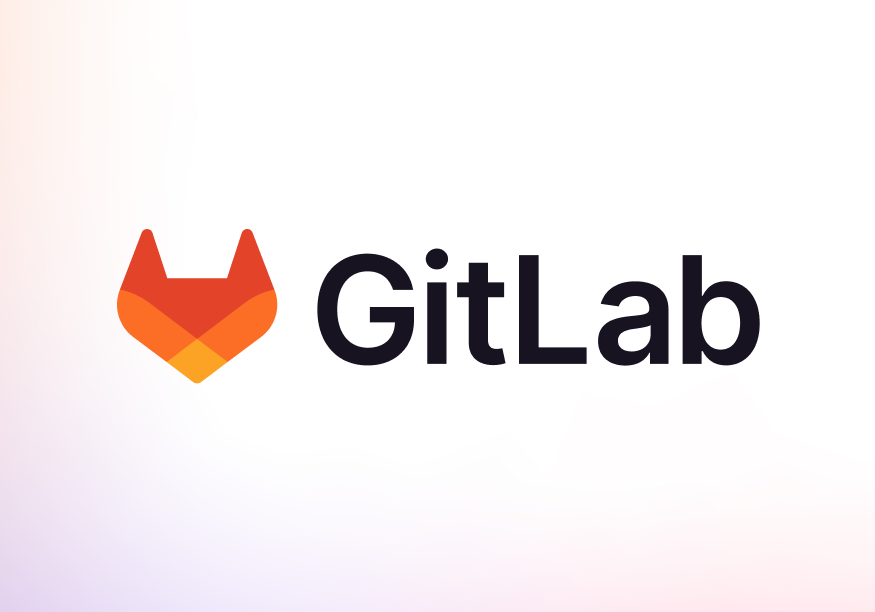Introduction
Jenkins and GitLab CI/CD are two popular continuous integration/delivery (CI/CD) tools used by developers and DevOps professionals to automate the build, test, and deployment of software applications. In this article, we will compare Jenkins and GitLab CI/CD from a high-level perspective, highlighting their main differences and pointing out what you should consider before making your choice.
Let’s note that it’s not supposed to be a guide for experts but mainly for those who want to have a broad overview of the different considerations.
The YouTube Channels in both English (En) and French (Fr) are now accessible, feel free to subscribe by clicking here.
Origins and Ownership
First, one of the main differences between Jenkins and GitLab CI/CD is their origin and ownership. Jenkins is an open-source tool that was initially developed by Kohsuke Kawaguchi in 2004. It is now maintained by the Jenkins community, with support from CloudBees, a company that provides commercial support and additional features for Jenkins.

GitLab CI/CD, on the other hand, is a feature of GitLab, an open-source Git repository manager that offers a range of tools for software development, including issue tracking, project management, and code review.
Pipeline Configuration
Next, another difference between the two tools is their approach to CI/CD pipelines, let’s consider a small pipeline like the one built to deploy Lambda functions by using GitLab which was covered in a precedent article:

Jenkins uses a “freestyle” approach, which means that users can define their own build, test, and deployment steps using a variety of plugins and custom scripts. For example, to build a Java project in Jenkins, you might configure a pipeline with the following steps:
pipeline {
agent any
stages {
stage('Build') {
steps {
sh 'mvn package'
}
}
stage('Test') {
steps {
sh 'mvn test'
}
}
stage('Deploy') {
steps {
sh 'mvn deploy'
}
}
}
}
This gives users a lot of flexibility and control but also requires more setup and maintenance. Jenkins also allows users to define parameters for their pipelines, which can be passed at runtime to customize the behavior of the pipeline. For example, you might define a parameter to specify the environment in which the pipeline should be run (e.g. dev, stage, prod):
pipeline {
agent any
parameters {
choice(name: 'ENVIRONMENT', choices: ['dev', 'stage', 'prod'], defaultValue: 'dev')
}
stages {
stage('Build') {
steps {
sh 'mvn package'
}
}
stage('Test') {
steps {
sh 'mvn test'
}
}
stage('Deploy') {
steps {
sh "mvn deploy -Denvironment=${env.ENVIRONMENT}"
}
}
}
}
GitLab CI/CD, on the other hand, uses a “declarative” approach, where users define their pipeline configuration in a single file called .gitlab-ci.yml. To build and deploy a Java project in GitLab CI/CD, you might define a pipeline with the following configuration:
image: maven:latest
stages:
- build
- test
- deploy
variables:
ENVIRONMENT: "dev"
build:
stage: build
script: mvn package
test:
stage: test
script: mvn test
deploy:
stage: deploy
script: mvn deploy -Denvironment=$ENVIRONMENT
This approach is simpler and more streamlined but may be less flexible for users who need to customize their pipelines in more advanced ways.
Integration and Deployment
Both Jenkins and GitLab CI/CD support a wide range of programming languages and tools, they can be used with a variety of cloud and on-premises platforms. However, GitLab CI/CD has several advantages when it comes to integration with other GitLab features. For example, users can trigger pipelines based on events in their Git repository, such as commits, tags, or merges. They can also view build artifacts, test results, and code coverage reports directly in the GitLab interface. Additionally, GitLab offers built-in support for deployment to various cloud platforms, including AWS, Azure, and GCP.
Scalability and Performance
In terms of scalability and performance, both Jenkins and GitLab CI/CD can handle large volumes of builds and deployments. However, Jenkins may require more resources and configuration to achieve optimal performance, especially for larger teams and projects. GitLab CI/CD, on the other hand, is designed to scale automatically with the number of users and projects, plus it offers built-in support for distributed runners and parallel pipelines.
Continuous Integration
Jenkins
- Jenkins is a popular open-source CI tool that is widely used for building, testing, and deploying software projects.
- It supports a wide variety of version control systems, including Git, Subversion, and Mercurial.
- Jenkins offers a flexible plugin architecture that allows users to extend its functionality with over 1,800 plugins.
- It has a large user community, which means that there are many resources available online for troubleshooting and getting help.
- Jenkins supports parallel builds, which allows multiple jobs to be run concurrently on different nodes.
- It provides a web interface for viewing the status of builds, as well as for configuring and managing jobs.
GitLab CI/CD
- GitLab CI/CD is a built-in feature of GitLab, a web-based Git repository manager.
- It supports a wide variety of version control systems, including Git, Subversion, and Mercurial.
- GitLab CI/CD offers a wide range of features, including support for pipelines, deployment to production, and rollback to previous versions.
- It integrates seamlessly with GitLab, allowing users to view the status of builds and deployments directly from the GitLab interface.
- GitLab CI/CD supports parallel builds and deployments, which allows users to deploy multiple applications at the same time.
- It provides a web interface for viewing the status of builds and deployments, as well as for configuring and managing pipelines.
Continuous Delivery
Jenkins
- Jenkins supports continuous delivery by allowing users to define pipelines that automatically build, test, and deploy software projects.
- It provides a range of plugins for integrating with different deployment environments, such as cloud platforms and container orchestration systems.
- Jenkins supports rolling deployments, which allows users to gradually roll out a new version of an application to a subset of users before deploying it to the entire user base.
- It provides a web interface for viewing the status of deployments and for managing the deployment process.
GitLab CI/CD
- GitLab CI/CD supports continuous delivery by allowing users to define pipelines that automatically build, test, and deploy software projects.
- It provides a range of integrations for deploying to different environments, such as cloud platforms and container orchestration systems.
- GitLab CI/CD supports rolling deployments, which allows users to gradually roll out a new version of an application to a subset of users before deploying it to the entire user base.
- It provides a web interface for viewing the status of deployments and for managing the deployment process.
Total Cost of Ownership
Total Cost of Ownership (TCO) is a measure of the direct and indirect financial costs associated with a product or service over its lifetime. It is a useful way to compare the costs of different options and make knowledgeable decisions about which one is the most cost-effective.
When comparing the TCO of Jenkins and GitLab CI/CD for DevOps, there are several factors to consider:
- License fees: Both Jenkins and GitLab are open-source tools, so they do not have license fees. However, GitLab also offers a paid version with additional features, which may incur additional costs.
- Hardware and infrastructure: Both Jenkins and GitLab can be run on a variety of hardware platforms and cloud environments, if your repositories aren’t close to your CI/CD tool then you should consider data transfer expenses as well, so the costs here will depend on your specific needs which directly impact the setup.
- Maintenance and support: Both Jenkins and GitLab require ongoing maintenance and support to keep them running smoothly. This can include tasks such as patching, upgrades, and troubleshooting.
- Training and onboarding: Both Jenkins and GitLab have a learning curve, and your team may need training and onboarding to get up to speed. This can add to the TCO.
- Integration with other tools: If you are using other tools in your DevOps workflow, you may need to integrate them with Jenkins or GitLab. This can add up to the TCO, depending on the complexity of the integration and the required resources.
Ultimately, the TCO of Jenkins and GitLab will depend on your specific needs and how you use the tools. It’s a good idea to carefully evaluate your requirements and costs when considering these or any other tools for your DevOps workflow.
———————
We have just started our journey to build a network of professionals to grow even more our free knowledge-sharing community that will give you a chance to learn interesting things about topics like cloud computing, software development, and software architectures while keeping the door open to more opportunities.
Does this speak to you? If YES, feel free to Join our Discord Server to stay in touch with the community and be part of independently organized events.
———————
Conclusion
Overall, both Jenkins and GitLab CI/CD are powerful tools for automating the software development process. Jenkins is a standalone CI tool that is widely used and has a large user community, while GitLab CI/CD is a built-in feature of GitLab, a web-based Git repository manager. Both tools support a wide variety of version control systems and offer a range of features for building, testing, and deploying software projects. They also provide web interfaces for viewing the status of builds and deployments and for managing the CI/CD process. Ultimately, the choice between the two will depend on your specific needs and preferences. If you want more control and customization, Jenkins may be the better choice. If you want a simpler, more integrated solution, GitLab CI/CD may be a better fit.
Thanks for reading this article. Like, recommend, and share if you enjoyed it. Follow us on Facebook, Twitter, and LinkedIn for more content.



